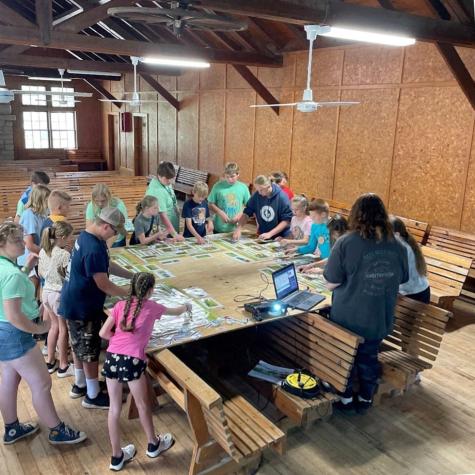

More than 1,000 Missouri youths take part in 4-H Aerial Ag Challenge
Over 1,000 Missouri youth engaged in a hands-on aerial ag challenge, using drones and STEM skills to explore modern farming innovations.
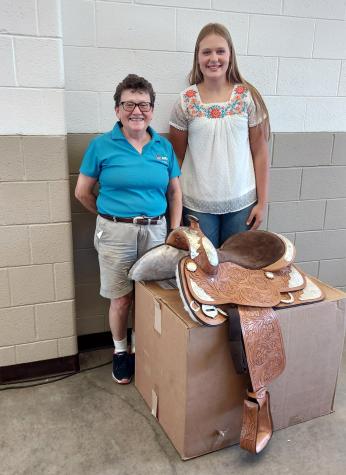
Missouri 4-H hosts equine contests
SEDALIA, Mo. – At the University of Missouri Extension 2023 State 4-H Horse Public Speaking and Demonstration and Youth Equine Fine Arts and Poster contests, July 26, youths demonstrated speaking, presentation and artistic abilities while sharing their equine knowledge.
Native warm-season grasses help feed livestock through drought
Discover how native warm-season grasses can sustain forage for livestock during drought by offering heat-tolerant feed when cool-season grasses decline.
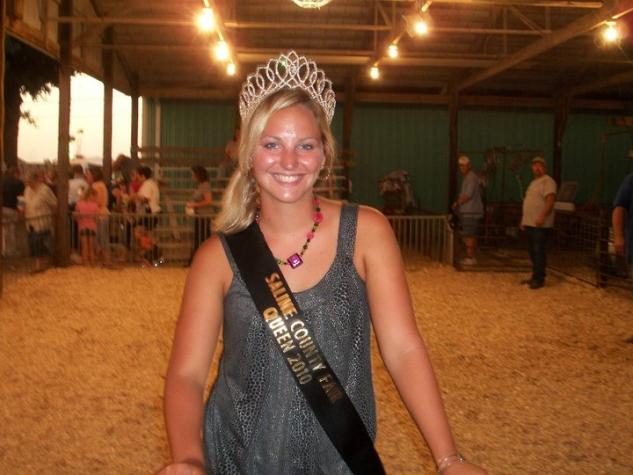
From Saline County 4-H to Mizzou Central coordinator
Kaleigh Summers brings her 4-H roots to coordinate events showcasing research, projects, and initiatives at the Missouri State Fair.
A No. 2 pencil is a beef producer's best tool
COLUMBIA, Mo. – One of the most important tools for livestock producers is a sharp No. 2 pencil. The pencil and some basic arithmetic can help take the emotion out of desperate measures to find feed. When you do the math, buying grain or other alternative feeds may be the best bang for the buck, says University of Missouri Extension agricultural business specialist Wesley Tucker.
Truxton farmer to speak on skip-row planting at Missouri Livestock Symposium, Dec. 7-8
Truxton farmer Harry Cope will discuss skip-row planting and cover crops for grazing at the Missouri Livestock Symposium Dec. 7-8.

Perilla mint poisoning of livestock worsens during drought
Drought increases livestock risk from toxic perilla mint, causing breathing issues and death in cattle and small ruminants.
5 reasons you need your veterinarian more than ever during drought
COLUMBIA, Mo. – During drought, beef producers might find a best friend in their local veterinarian, says University of Missouri Extension veterinary toxicologist Tim Evans. “Although veterinarians always provide a valuable service to animal owners, their value to livestock producers becomes increasingly important during drought, high heat and limited forage availability,” says Evans.
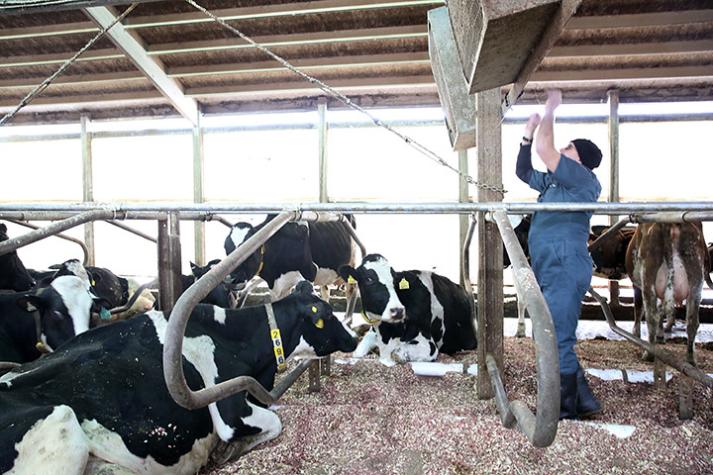
Helping dairy cows through extreme heat
Learn how to protect dairy cows from heat stress with cooling, nutrition, and reproductive management strategies.
Cover Crop Decision Tool provides choices for grazing
Use a free online tool to select cover crops for fall and winter grazing based on soil, rotation, and farm goals.
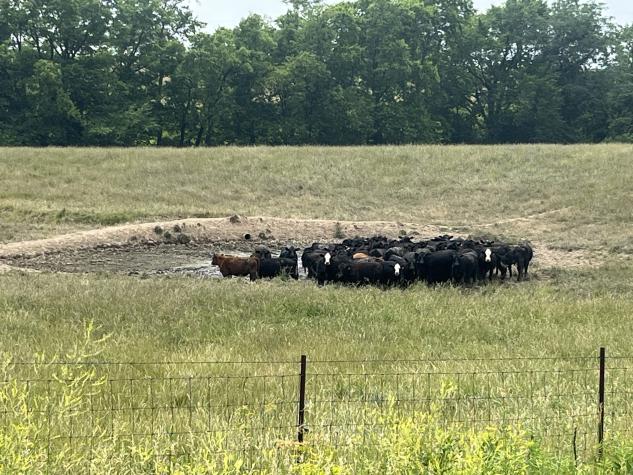
Now is time to use water resources available from agencies
Missouri livestock producers facing drought can explore local, state and federal programs for wells, stock tanks and waterlines to plan for future shortages.
Deciding when to green chop drought-stressed corn or turn into silage
COLUMBIA, Mo. – Many Missouri corn growers are unsure about when to green chop and/or ensile their drought-stressed crops. There are key points to take into consideration on both the crop and livestock side, according to University of Missouri Extension specialists.Agronomy recommendations (MU Extension state agronomy specialist Kelly Nelson):
MU Extension receives CDC funding to promote nutrition, physical activity
COLUMBIA, Mo. – University of Missouri Extension has received $768,000 from the Centers for Disease Control and Prevention (CDC) for the first year of a five-year project to tackle high rates of obesity in 10 Missouri counties. “This funding supports local programs to improve access to fresh, healthy foods and opportunities for physical activity with the goal of reducing chronic diseases,” said Terry O’Toole of the CDC’s Division of…
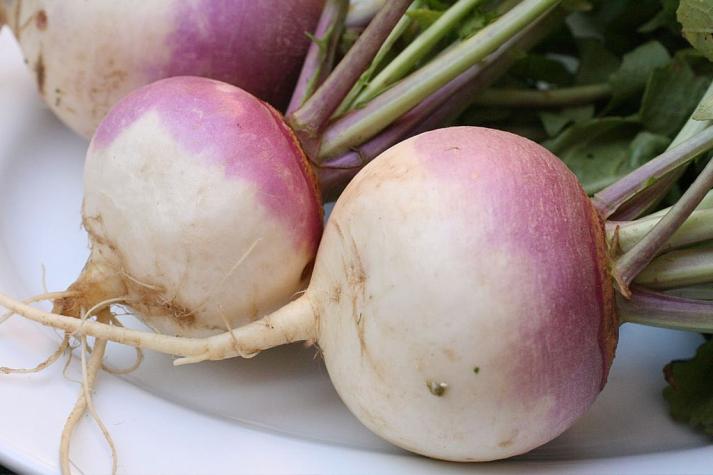
Turn up the flavor and nutrition by planting turnips
Easily grow tasty, nutritious turnips in late summer for cooler-season harvest—plant in full sun, water weekly, mulch, and enjoy both root and greens.
MU Extension to hold crop and forage chat in Palmyra
Farmers in northeastern Missouri can get free crop and forage updates from specialists at an August Palmyra event.
MU Extension offers help for crops, livestock and people during drought
Support and resources help farmers protect crops, livestock, and mental health during drought conditions.
If you still have grass, grow now, graze later
Stockpile Missouri pastures by fertilizing now and delaying grazing to save hay and boost forage quality through winter.
Incentive funds for cover crops and silvopasture available
Missouri farmers can apply for cover crop and silvopasture incentive funds through Aug. 31 to support climate-smart practices.
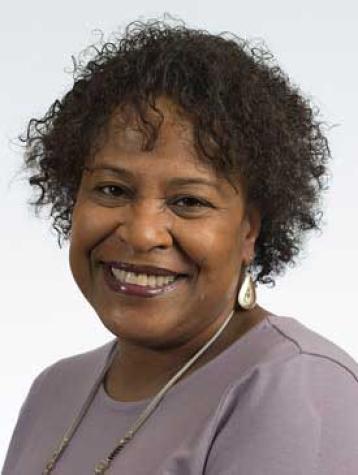
Our Community, Our Health: learning from local voices
BENTON, Mo. – Maude Harris really wants to know what people in Scott County think about the COVID-19 vaccine and other community health measures.
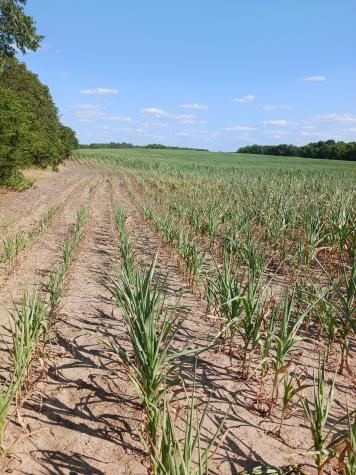
Now is time for 911 emergency forages
Explore emergency forage options to sustain livestock during ongoing drought and feed shortages.
Drought meetings offered in SW Missouri Aug. 4
Attend free SW Missouri meetings Aug. 4 for cattle producers on drought survival, hay management, and feeding strategies.
Early weaning calves to reduce nutrient needs during drought
STOCKTON, Mo. – “Early wean calves to reduce cow herd nutrient needs to match drought-limited feed resources,” says Patrick Davis, University of Missouri Extension livestock field specialist. In addition, early weaning can improve calf performance because calves are put on a more nutritious diet following weaning.Davis discusses strategies to help cattle producers be successful in early weaning calves:
Seed for an 'annual pasture within a perennial pasture'
COLUMBIA, Mo. – Producers looking for ways to grow forages during drought might consider planting an “annual pasture within a perennial pasture,” says University of Missouri Extension state forage specialist Harley Naumann.Naumann says this is a good year to add cool-season annual grass seed to perennial pastures. Cool-season grasses can extend the growing season, provide excellent nutritive value and complement thin pastures.
Use caution when using drought-stricken corn for relief feed
Learn safe methods for feeding drought-stressed corn to livestock, including nitrate testing, harvesting, and supplementation tips.
Rotten tomatoes star in garden horror show
COLUMBIA, Mo. – Your beautiful tomato plant is setting fruit and soon has nice green tomatoes. Then, to your horror, a dark sunken spot shows up at the bottom of the fruit.You might think an insect or disease has attacked your plant, but such is not the case. Old-timers referred to the problem as “sooty snoot.” Today, it is called blossom-end rot. It is a physiological disorder caused by a calcium imbalance.
